Millions of Arba'een pilgrims from around the world gather in Karbala
Millions of pilgrims, including a record number of Iranians, have gathered in Iraq’s holy city of Karbala to commemorate Arba’een, the 40th day after the martyrdom anniversary of Imam Hussein, the third Shia Imam.
Among the pilgrims, which usually number 20 million from around the world every year, many arrive in Karbala after trekking about 70 kilometers northward from the holy city of Najaf in a symbolic gesture honoring Imam Hussein.
Pilgrims enter the holy cities of Najaf and Karbala up to two weeks before Arba'een. This year’s Arba’een falls on Saturday, October 19.
Speaking on Thursday, Iran's Interior Minister Abdolreza Rahmani Fazli said a total of 3.5 million Iranians had entered Iraq to take part in the ceremony, 1.2 million more than the number reported last year and topping previous participation records.
Fazli praised what he described as "good cooperation" on behalf of Iraqi officials in facilitating the process, adding that all branches of the Iranian government had also contributed to managing the huge pilgrimage.
Foreign pilgrims from other countries also participate in the event, with tens of thousands entering Iraq notably from countries such as Pakistan, Afghanistan, Azerbaijan, Turkey and Lebanon.

The pilgrims are greeted by the generous hospitality of the Iraqi people, who provide them with food, water, transport and accommodation needed for the journey.
The Love & Sprit to serve Pilgrims of #Arbaeen for free in Iraqis is really some thing U will never saw on earth other than #ArbaeenWalk pic.twitter.com/7Oys1uzL07
— Syeda Sakeena🇵🇸 (@awaited_hope) October 17, 2019
Imam Hussein was martyred along with dozens of his companions during a last-stand battle against the tyrant of the time, Yazid I, more than thirteen centuries ago.
The martyrdom of Imam Hussein has turned into a symbol of righteous revolt and social and political reform.
Imam Hussein is a highly-venerated figure not only among Shia Muslims but also among Sunnis and people of other faiths.
Protestants and Catholics paying their tribute during Arbaeen at Karbala.
— 🍂 جعفر امام🍂 (@SYEDJAFFER_IMAM) September 22, 2019
Do not forget Wahab bin Qalbi one of the Martyrs of Karbala, a Christian who turned Muslim and fought for Imam Hussain (as) and died. He had got married 2 weeks before Ashura.#HussainIsForHumanity pic.twitter.com/Hm75gZEBWJ
Mainstream media silence
Many observers have highlighted that despite Arba'een being the world's largest annual peaceful gathering on earth, there has been substantially little attention from mainstream media to the major ceremony.
"The biggest gathering in the world is taking place these days, but it receives the least possible media coverage," wrote media activist Amir Abbas Sadegi for Iran's ISNA news agency on Friday.
Watch | Arbaeen vs. world media: pic.twitter.com/h8w6vvwxQE
— Sayed M. Modarresi (@SayedModarresi) October 17, 2019
Sadegi said coupled with the mainstream silence, certain groups have sought to undermine Arba'een by propagating false information.
Earlier this month, Arab media outlets reported a US-backed plan seeking to influence recent anti-corruption protests in Iraq in a bid to spark instability in the country.
Observers believe the timing of the provocations signals that foreign-backed elements seek to undermine the Arba’een processions, specifically by fueling antagonism towards Iran.
The protests, however, have largely receded since last week.
On Tuesday, Prominent Iraqi Shia cleric Muqtada al-Sadr called on his followers to take part in Arba'een processions chanting slogans denouncing corruption, but also the United States and Israel.
On the official Twitter account of Leader of the Islamic Revolution Ayatollah Seyyed Ali Khamenei, a posting last week said an enemy plot seeking to “sow discord” between the two nations of Iraq and Iran will fail.
Given the high number of Iranians participating in the annual event, Arba'een has consequently turned into a symbol of unity between the Iraqi and Iranian people, who both deeply venerate Imam Hussein.
California governor slams Trump, urges Europe to see him as ‘temporary’
Explainer: What does Rust Belt’s continued decline reveal about American capitalism
Ten Palestinians killed in Israeli strikes across Gaza Strip despite ceasefire
Syria's HTS says Israeli regime 'seeking conflict' in region
Gunmen kill at least 32 people in northern Nigeria
Israel attacks south Lebanon amid ongoing ceasefire violations
Discover Iran: Shahr-e Sukhteh, a Bronze Age marvel of urban planning, artistry and trade
VIDEO | Thousands march against NATO summit in Munich


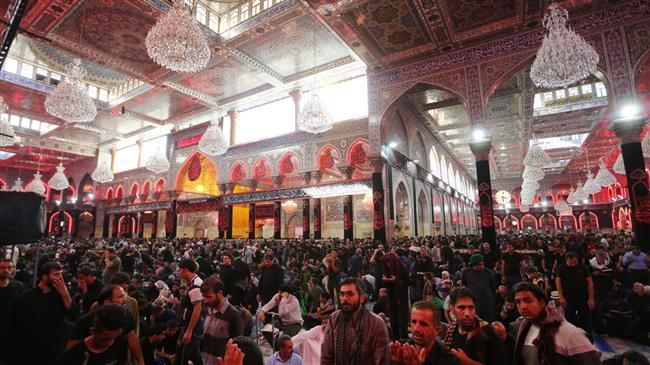

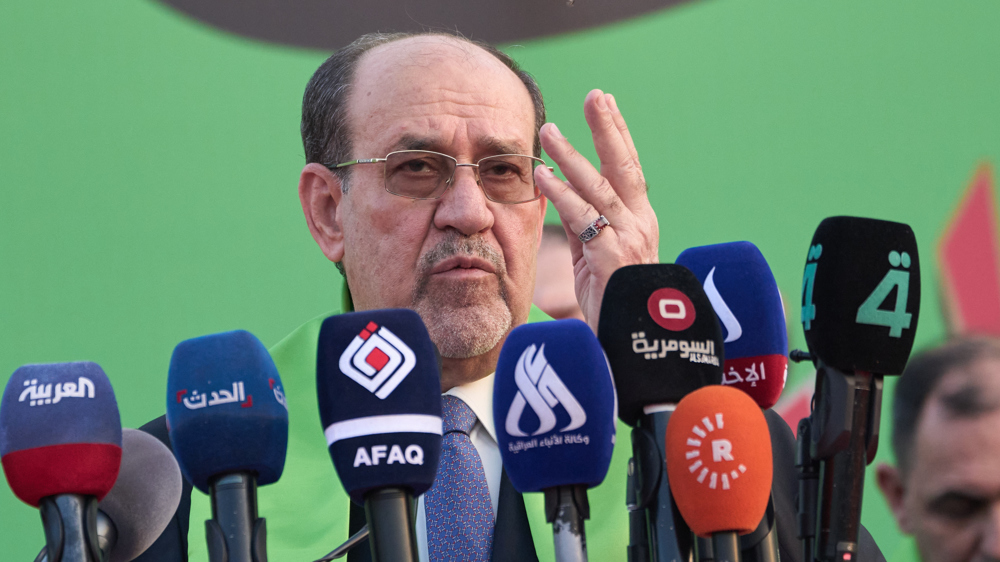
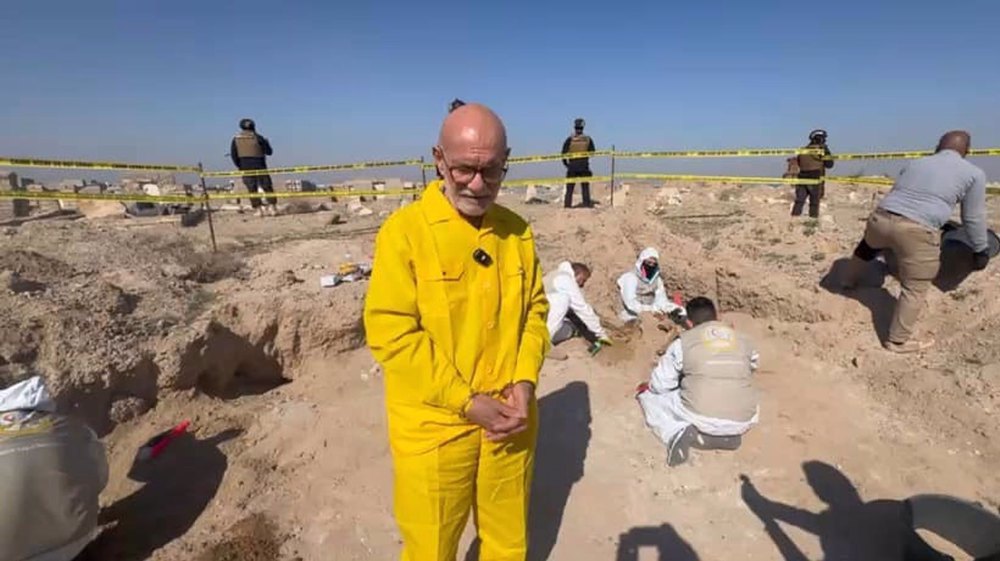
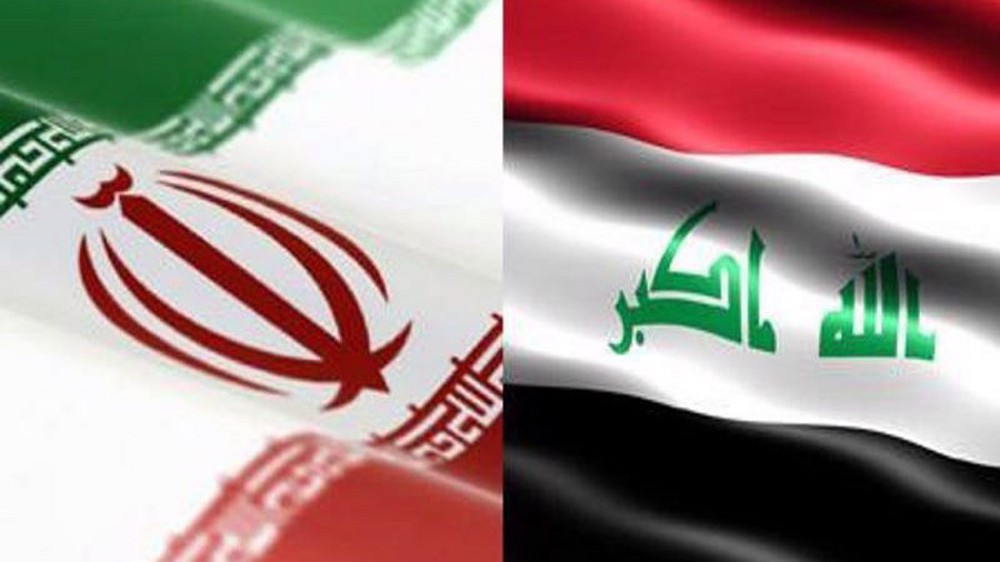



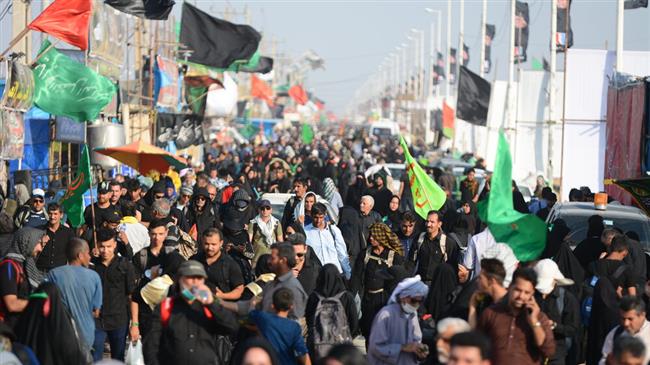
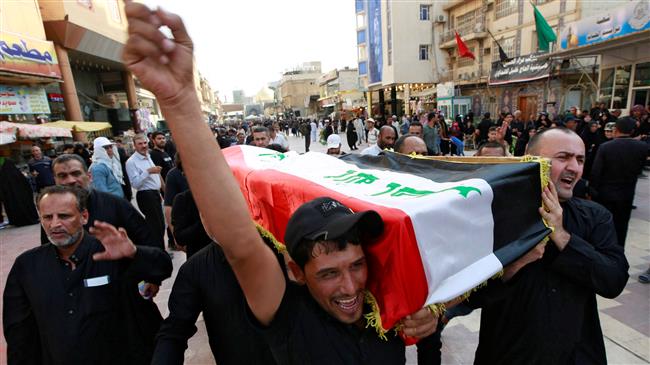


 This makes it easy to access the Press TV website
This makes it easy to access the Press TV website